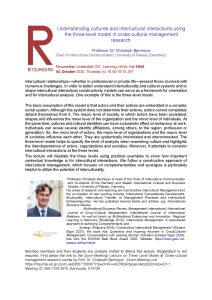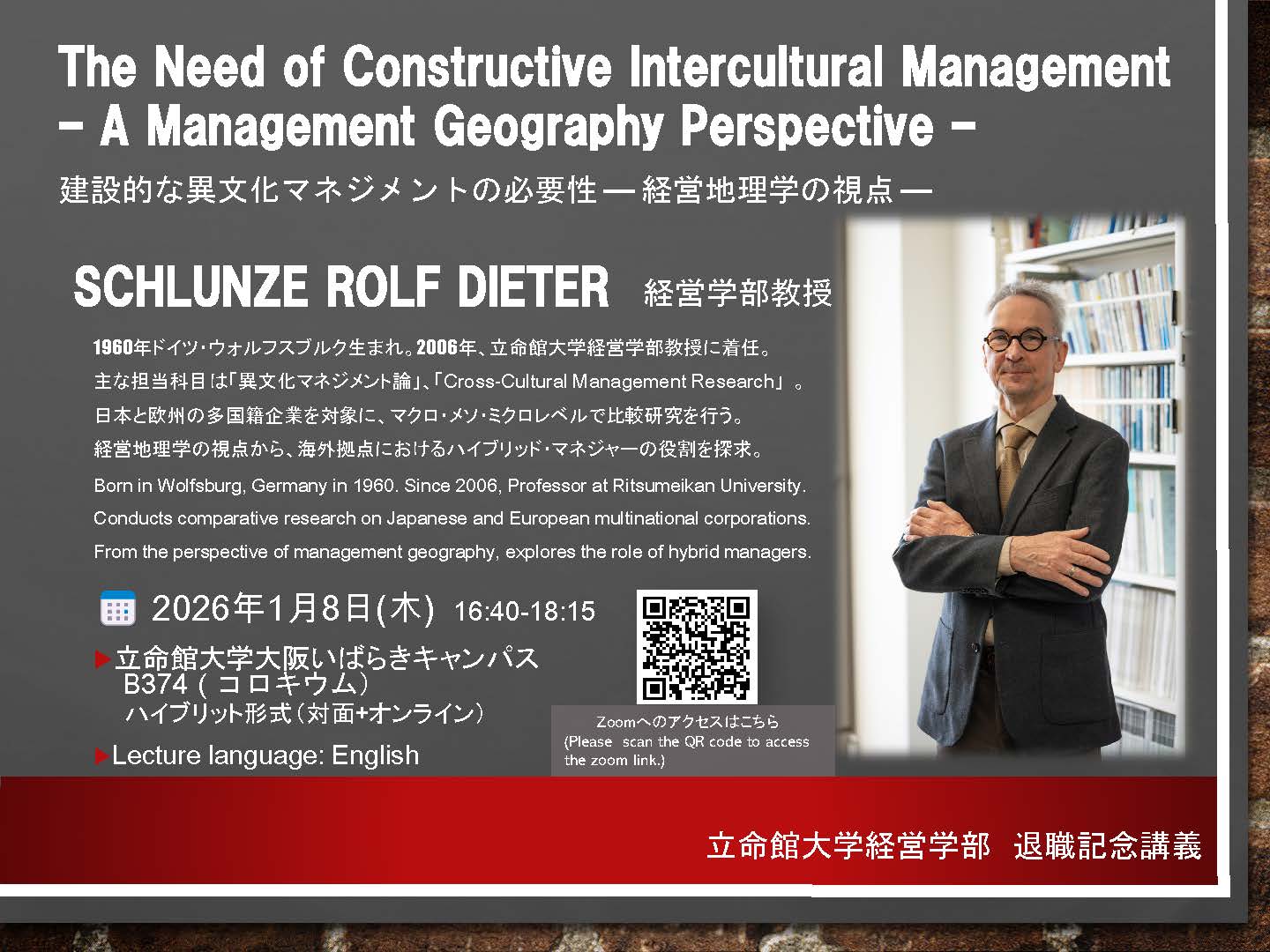Forthcoming Event
ManGeo Research Group meeting at 2026 AJG Academic Conference
March 28, 2026 (Saturday afternoon) at Hosei University
Previous Events
Last Lecture (January 8, 2026, 4:40-6:15 pm JST | 8:40-10:15 MEZ)
at Ritsumeikan OIC Colloquium B374
LAST LECTURE OF ROLF D SCHLUNZE is a Hybrid lecture:
This is the Zoom Link https://ritsumei-ac-jp.zoom.us/j/93375066442
LEARNING FROM THE HYBRID MANAGER: Having success by cultural awareness and creativity

-
Opening Remarks
-
Prof. Dr. Rolf Schlunze (Ritsumeikan University): Is the Hybrid Manager Still Needed?
-
-
Key Presentations
-
Prof. Dr. Christoph Barmeyer (University of Passau, Germany): Three Types of Boundary-Spanning Managers in Multinational Companies: A Classification Taking Constructive Intercultural Management into Account
-
Ms. Ulrike Haupt (Culture Bridge): The Art of Connection: Creative Paths for Bridging Cultures
-
Prof. Will Baber, PhD (Kyoto University ): Making Space for Hybrid Managers
-
-
Commentary
-
Prof. Fazekas Balazs, PhD (Ritsumeikan University)
-
-
General Discussion

Venue: Learning Infinity Hall H201, 2nd Floor, H-Building, Ritsumeikan University, Osaka Ibaraki Campus (OIC)
-
Prof. Dr. Christoph Barmeyer (Chair of Intercultural Communication, University of Passau, Germany)
Understanding Cultures and Intercultural Interactions Using the Three-Level Model in Cross-Cultural Management Research
-
Prof. Dr. Rolf Schlunze (Ritsumeikan University)
Workshop on Case Study Research and Social Network Analysis
Organizer: Prof. Dr. Rolf D. Schlunze (RU) & Prof. Dr. Tomasz Dorozynski (UNIC)
This workshop is designed to prepare undergraduate and graduate students to join research activities or conduct their case study research. We are eager to spur theoretical and methodological developments promoting contextual management appraisals. New approaches able to cope with an increasing complexity are needed for better managerial decisions making. Our workshop was held at Ritsumeikan University OIC Learning Studio C271 on Friday 27th June 2025 from 3-6 pm JST and as online meeting at University of Lodz connecting students at both universities over an ongoing research project. Find below the preliminary program.
Workshop on Qualitative Analysis in Management Geography |
| Session I (3-4 pm)
How to design a contextual management appraisal? · Prof. Tomasz Dorozynski introduces the ManGeo Three Level Model. How to analysis quality of governance and MNE embeddedness? · Prof. Rolf D. Schlunze introduces an CS(p)R approach for MNE embeddedness evaluation. |
|
Session II (4-5 pm) How to conduct a case study in International Businesses and Management research? · Ms. Wang Xuesong explains about the Gioia method and its application. |
|
Session III (5-6 pm) How to build an online questionnaire? · Michael Kronenwett explains Mynetworkmap.com online by ZOOM |

